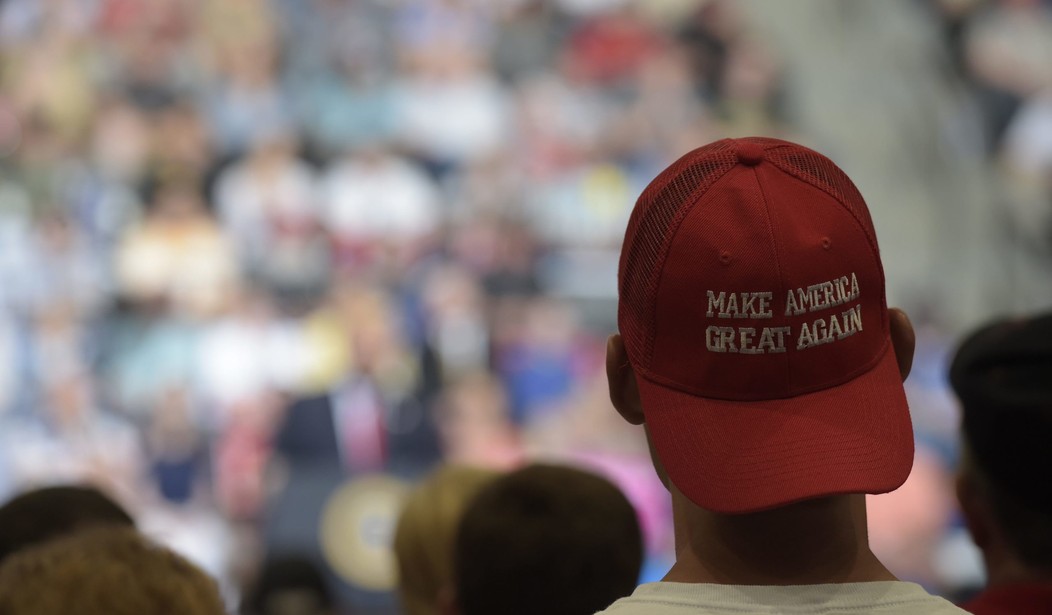Narcissus is on the move. Studies say millennials are likelier than older generations to exhibit narcissistic tendencies and are proud of it. This isn’t something my fellow millennials, born between 1980 and 1994, are likely to grow out of. The pollsters tell us we are “likely to remain narcissistic as we age.”
We all have heard the rumors: Millennials treat life as a perpetual season of adolescence. We are prone to sacrifice our potential to improve the world on the altar of X-Box, social media, free rent in our parents’ basements, and lingering on our parents’ health insurance plans through age 26.
As natural as it may seem here to inveigh against my peers for navel-gazing their way through life, I won’t. Ripping millennials was at least novel 10 or 15 years ago, when relatively few of us had our act together. (Not that it was fair then: 15 years ago, half of millennials were between 8 and 15 years old.) Today, though, taking pot shots at my generation for its ineptitude is cliché, and even a little confusing.
Millennials are now roughly between age 23 and age 37. (Dude … that’s almost 40.) Contrary to many weather forecasts, the Earth has kept spinning despite millennials. Although we millennials have a lot to work on, we haven’t destroyed America yet. But preceding generations have banged America up pretty good, possibly because our elders share our tragic flaw: narcissism.
Humankind’s temptation to narcissism is universal, transcendent of time and space, and older than the ancient Greek myth of Narcissus, the youth whose obsession with his own beauty caused him to stare at his own reflection in a pool until starving to death.
Political commentator and PJ Media cofounder Roger L. Simon (born in 1943) locates a deep-seated narcissism in his own generation, born right before the Baby Boomers. He calls his generation the “me generation,” the “Least Great Generation,” the “Ungrateful Generation,” and a reincarnation of the “Lost Generation” (which fought in World War I). In I Know Best: How Moral Narcissism Is Undermining Our Republic, If It Hasn’t Already, Simon writes:
We were just Eliot’s ‘Hollow Men’ in hipster attire. Worse than that, we had — consciously or unconsciously or both — worked to unwind everything our parents had built. And it had its result.
One result was the election of Barack Obama as president, a candidate for whom many millennials were not old enough to vote in 2008 or 2012. Obama promised hope and change without definition. The widespread embrace by pre-millennial voters of Obama’s ambiguous pledge was an embrace of the inherently countercultural. Despite sounding positive, the clarion call was negative: anti-status quo, anti-precedent, anti-them … pro-you, meaning pro-me. Simon writes:
That [Obama] celebrated his victory in front of Grecian columns was symbolic on more ways than one. Narcissus was in the house — both on stage and in the audience. The me generation had found its perfect leader. … Not surprisingly, with the failure of his presidency, it became de rigueur for the Right to accuse Barack Obama of being narcissistic, or of having a narcissistic personality disorder … even though no sector of our society is immune. We are all narcissists. It’s just a matter of degree.
The 2016 election, which occurred after Simon’s book was published, seems to confirm widespread approval of narcissism among voters of all generations, regardless of political party and persuasion. President Donald Trump is at least as obsessed with his public appearance as Obama was (although Obama may simply have hidden it better). Trump’s campaign was no more substantive than Obama’s. The slogans “Make America Great Again” and “Hope and Change” are practically synonymous.
Or are they? The campaign slogans of Trump and Obama were equally shallow, nebulous, self-ratifying — and contagious. The only difference between them is that Trump’s slogan granted an assumption that Obama’s slogan and two-term presidency routinely rejected: America is exceptional, and she has every right to be.
As the generations that elected Obama gradually pass away, Millennials will continue to gain influence over the direction of the country and its elected leaders. It would behoove society if more people of all generations, and more candidates for elected office, internalized the moral of the myth of Narcissus — that narcissism is potentially fatal.
Unfortunately, trends suggest such an awakening is unlikely. Narcissism is here to stay. Other than shedding our narcissism to become more virtuous, the next-best security for America’s future could, ironically, prove a kind of collective American narcissism — an unashamed embrace of America’s exceptionalism, and a perpetual study of what first made America beautiful.
Michael T. Hamilton ([email protected], @MikeFreeMarket) writes and edits for the liberty-minded clients of Good Comma Editing, LLC, a freelance writing and editing company. His writing appears at The Wall Street Journal, National Review Online, The Federalist, Real Clear sites, WORLD Magazine, and in newspapers around the country.









Join the conversation as a VIP Member